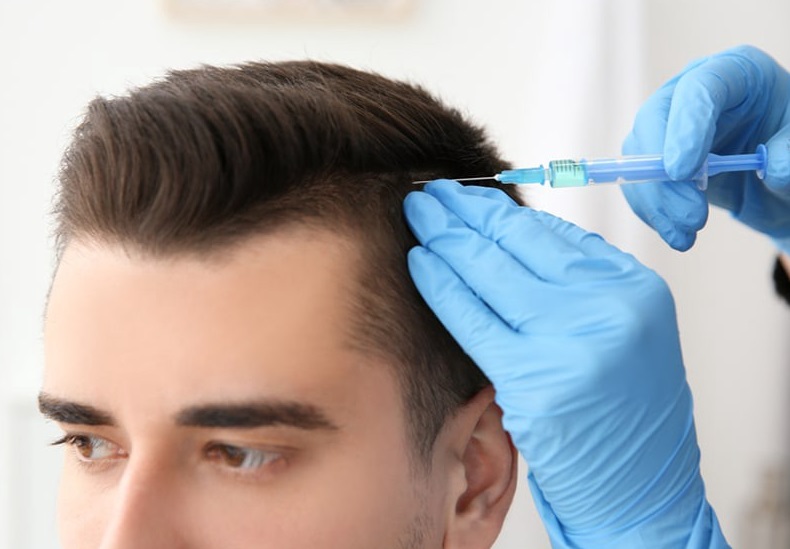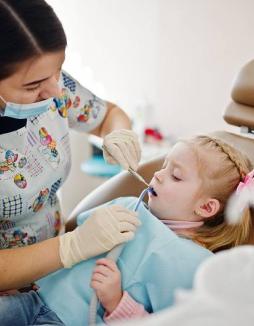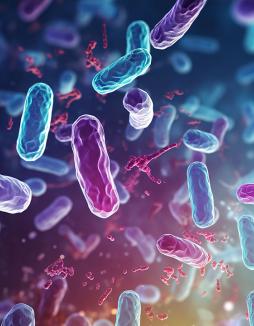How To Care For Your Hair After A Hair Transplant
A hair transplant is an effective and near permanent hair restoration procedure that gives natural look. The post hair transplantation period and care is as essential as the treatment for obtaining the desired results.
The healing period after a hair transplantation procedure depends on the type of technique used. Usually, patients feel better within a day or two after the surgery. However, it is normal to have some numbness and soreness in the scalp for a few post-surgery. The puncture sites will have red scabs at the bottom where the transplant hair shafts are placed on the recipient site. This might be visible for about 7-10 days. The patient generally gains normal appearance within 10-15 days following the procedure, with only slight residual redness over the area. It is important to keep in mind that recovery after a hair transplant is a very individualistic process that depends on several factors such as age, lifestyle, diet and even the climate around the patient.
The post-operative instructions given by the doctors during the recovery period are an important part of a healthy recovery. The experts at the best hair transplant hospital in Turkey recommend some specific follow-up care routines customized for the patient’s needs. Some common precautions and care after hair transplant are:
Hair Wash post hair transplant
This is one of the most common concerns after the surgery as it can impact the final result of the transplant. The patient is instructed about washing the hair correctly following the procedure. It mainly involves covering the transplanted area with lotion or ointment which is typically left for 15-30 minutes. This process softens the scabs around the grafts that have been transplanted and also for the donor area. It helps in getting rid of the traces of dried blood and promotes faster healing. After the required time period, the patient can wash the scalp with warm water and using special medical shampoo for the donor and transplanted area. Take care to lather only a small amount of shampoo between hands before applying on to the entire scalp. Refrain from any rubbing and wash gently with soft movements using palms and no pressure.
For drying the hair, it is advisable to use a paper towel and no rubbing at all. Just gently pat the hair to absorb water. The doctor will also prescribe a moisturizer that must be used until the scabs fall off or the scalp is dry. Moisturiser can also be used between the hair washes if the dry sensation persists. Initially, it might be recommended to shampoo your hair once daily to remove the scabs. Some patients may even need to wash the hair more than once a day after the transplantation. There should be no dried blood or scabs on the scalp after about 7-10 days of this routine. Normal washing for the hair can only be started after at least 14 days of the transplant procedure.
However, a patient needs to make sure that they read the components before purchasing any hair product, as they should not contain silicone, aroma and dyes.
Redness and swelling on the scalp
Although the advanced techniques such as Choi Implanter Pen, swelling is usually very less, if any, after the hair transplantation. It is more common after a major hair transplant surgery as these transplants involve work on the hairline. Sometimes, the swelling is prominent enough as it may affect the forehead and even the area around the eyes. However, it will last for two to five days. Dexamethasone, a drug that is used to reduce these symptoms, will be given by the doctor. If the redness and swelling persists for longer period, it is advisable to contact your hair transplant specialist.
Itchiness after the hair transplant
This is a very common post-operative effect that most patient feel after the hair transplant. Itching sensation may occur all over the scalp and usually lasts for about a week or two after the operation. Normally, itchiness indicates that the tissue is healing and is of no concern. But if it becomes too strong, the doctor may suggest antihistamine pills to manage itchiness.
Expect a mild pain for a few days after the transplant
There will be some pain and discomfort depending on the type of hair transplant technique. It usually lasts for a couple of days after the procedure. It might be little uncomfortable while sleeping during the initial days post-op. Typically, the pain is felt more in the donor area than the recipient area after the transplant. The doctor will prescribe over the counter pain killers to manage the discomfort.
A proper sleeping position
The recipient areas after the hair transplant should not be touched or disturbed during the first week after the surgery. Patients are generally recommended to sleep on their back, using pillows to keep their head elevated. This will also help in decreasing the swelling and inflammation on the scalp. Some patients may even have to use special pillows for the first 7-10 days to prevent any post-op comlpication.













